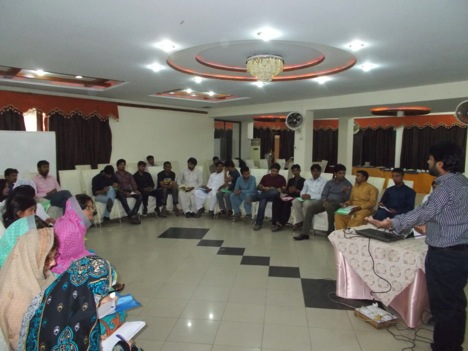
To this complaint is added that of Amnesty International “European governments complicit in torture”. The report describes how European governments, to prevent departures from the country, are actively supporting a sophisticated system of violence and exploitation of refugees and migrants by the Libyan Coast Guard, the authorities in charge of detainees and traffickers. “Hundreds of thousands of refugees and migrants trapped in Libya are at the mercy of local authorities, militias, armed groups and human traffickers, often in collusion to gain economic benefits.” Tens of thousands of people (including women and children) are imprisoned indefinitely in overcrowded detention centres and systematically subjected to violence and abuse of all kinds. “
Cooperation with the various Libyan actors by Italy and the EU develops along three axes:
– provision of technical support and assistance to the Department for the fight against illegal immigration, the Libyan authority that manages detention centres in which refugees and migrants are held arbitrarily and indefinitely and subjected to serious violations of human rights, including torture;
– the provision of training, equipment (ships included) and other forms of assistance to the Libyan Coast Guard to enable it to intercept people at sea;
– the signing of agreements with local authorities, tribal leaders and armed groups to encourage them to stop human trafficking and increase controls at the southern border of Libya.
Other roads are possible
Faced with this dramatic situation, we strongly urge the European Union and the Italian Government to immediately abandon this unjustified inhuman policy that produces serious injustices against thousands of people already terribly affected by poverty, war and suffering of all kinds.
There are other ways that the international community, if it wants to continue to define itself as “human”, must follow:
– Address once and for all the problem of the economic development of Africa that the neo-colonialist policies of the European States have systematically prevented to their advantage;
– establish a supranational authority able to establish a migration credit divided between countries that welcome migrants (not just Europeans). The mechanism would be to accommodate migrants in their territories in quantities equal to or higher than the assigned quotas (according to criteria to be established at international level). Anyone who does not receive or accept the amount assigned must purchase the credits that are missing from other governments who, on the other hand, have behaved in a more virtuous manner than required and who can therefore sell their “excess” credits.
– Facilitate the opening of new humanitarian corridors, a project that demonstrates how, by using the legislative instruments already available to the European Union, regular entrances can be guaranteed by avoiding risky journeys of hope. A project that can then be replicated in other countries together with civil society. A model of solidarity that is certainly a source of pride for Italy, as Pope Francis also emphasized: “I look with admiration at the initiative of the humanitarian corridors: they are the drop that will change the sea”. The humanitarian corridors also have the merit of involving and enhancing the role of civil society in the management of a crisis that is global not only because it concerns all the countries of the world, but because it concerns ALL. It is certainly to be appreciated and welcomed as a small but significant inversion of tendency – at least we hope so – the arrival in Italy of a few days ago of 162 migrants from Libya thanks to the first humanitarian corridor resulting from an agreement that involved the Government Italian, the Libyan one, the UN and the Italian Episcopal Conference. Agreement that should foresee in the course of 2018 the arrival in Italy from Libya between 5,000 and 10,000 people.
– To disseminate local initiatives that feed the culture of inclusion with the aim of facilitating interaction between citizens and migrants. The reception works best when it is organized in small centres and the facilities are not isolated but well connected to each other. There are many experiences in the Lodi area that work but it is necessary, with the support and help of the institutions, to strongly oppose the so-called “immigration business” which, in addition to making the whole sector look bad, has negative consequences on the whole reception system.




Leave A Comment
You must be logged in to post a comment.